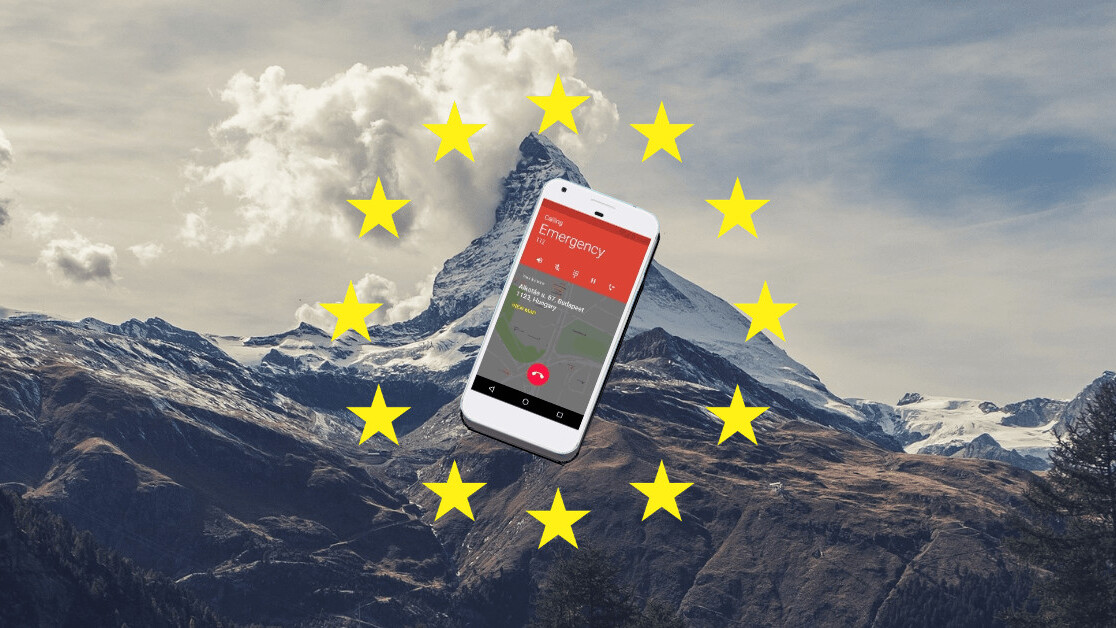
Advanced Mobile Location (AML) has been one of the biggest technological developments for emergency services around the globe. Once enabled, AML automatically activates the geo-locating capabilities of smartphones all over the world during emergency calls — sending locations to dispatchers that are 4,000 times more accurate than was previously possible.
There’s just one problem, only 12 European countries and three others use it — but that’s set to change.
The new European Electronics Communication Code will make it mandatory for all EU member states to use handset-derived location in addition to network-based information by December 2020 — ensuring AML deployment across the continent.
But how does AML work and why is it important for emergency services?

Our smartphones can save our lives, so let them
It does seem kind of crazy not to fully utilize the amazing technology most of us carry around in our pockets to save our lives. While there are plenty of emergency apps available (so you might want to check that out), but the beauty of AML is that it requires no effort from the user.
No additional hardware, downloads, or forethought.
The importance of locating an emergency can’t be stressed enough, but it often takes up a lot of precious time during emergency calls — which could be used for giving live saving instructions. Countries that have now implemented AML have been able to more accurately locate callers, while spending less time doing it.
Most phones today are AML compatible today, with iOS and Android supporting the feature natively. But out of the two tech giants, Google is miles ahead when it comes to proactive cooperation with emergency services, having worked for several years with Brussels-based NGO, EENA, which has been instrumental in the push for AML adoption in Europe and around the world.
“We are both motivated by a desire to improve the state of public safety and save lives during emergency situations,” Fiona Lee, ELS Business Operations Lead at Google, told TNW. “In Google’s case, we can do this by re-purposing existing location technology that we make available to Android developers and use ourselves in Google’s services.”

So whenever you make an emergency phone call in a country that supports AML, your phone automatically turns on all location services available to it and sends an SMS with your exact location to the emergency services — changing the accuracy of locationing from a 2 km radius down to just a few meters.
To make AML adoption easier, Google makes ELS (Google’s system to deliver emergency location data) free to emergency services and has made sure the location messages using industry standard protocols (SMS, HTTPS) which can be easily integrated into the current technological infrastructure used by emergency services.
Saving lives all across Europe
Although some European countries have already implemented AML for their emergency services, there are still more than half that haven’t. Benoît Vivier, EENA’s Public Affairs Manager, says including AML in the new EECC was the push these countries needed.
“This is an incredibly important development and many countries have been asking for this legislative push to deploy AML,” Vivier explains. “So it’s clear this legislation was needed to ensure that the other half of EU citizens can also benefit from this technology.”
MEP Dita Charanzová was responsible for the EECC and pushed for the inclusion of additional emergency measures. To her, it was incredibly important to get this through on a European level. To make sure national emergency services don’t have to fight for location data 28 times and get 28 different mutually-incompatible systems.
“Emergency services know that AML will save lives and want to use it. But there are costs related to any new technology and national bureaucracies, outside the emergency services themselves, will always try to delay implementation or cut funding. By putting it into the law, we make sure that emergency services will for sure get AML funding and much quicker. We also make it a requirement for the telecom network operators to support the service, another blocking point.”
At least nine European countries are expected to adopt AML in the next 12 months and the rest before the end of 2020. It won’t stop there, however, as of March 17 2022, the EECC will require all smartphones sold in the European single market to be able to provide handset-based location data.
TNW Conference 2019 is coming! Check out our glorious new location, an inspiring lineup of speakers and activities, and how to be a part of this annual tech bonanza by clicking here.
Get the TNW newsletter
Get the most important tech news in your inbox each week.





